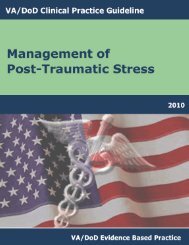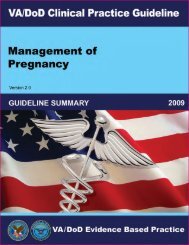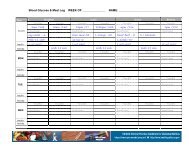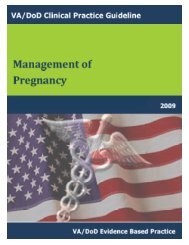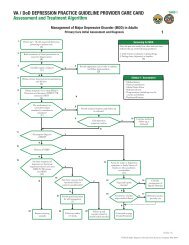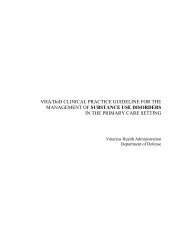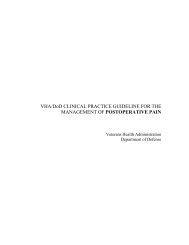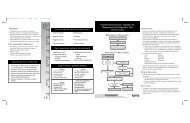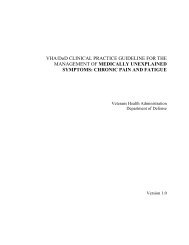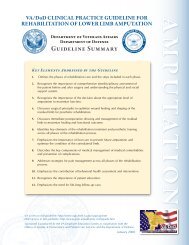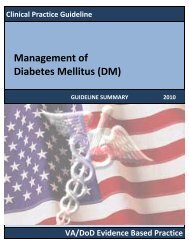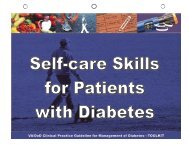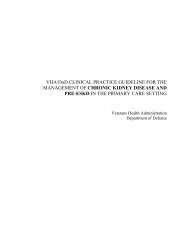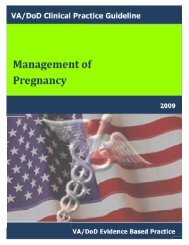DM Full Guideline (2010) - VA/DoD Clinical Practice Guidelines Home
DM Full Guideline (2010) - VA/DoD Clinical Practice Guidelines Home
DM Full Guideline (2010) - VA/DoD Clinical Practice Guidelines Home
Create successful ePaper yourself
Turn your PDF publications into a flip-book with our unique Google optimized e-Paper software.
Version 4.0<br />
APPENDIX M-1<br />
Core Competencies (Survival Skills) for Patients with Diabetes<br />
<strong>VA</strong>/<strong>DoD</strong> <strong>Clinical</strong> <strong>Practice</strong> <strong>Guideline</strong><br />
for the Management of Diabetes Mellitus<br />
The following core competencies are not substitutes for diabetes self-management education (DSME) or medical<br />
nutrition therapy. It is preferable for patients to participate in a comprehensive interdisciplinary DSME program. If<br />
such a program is not available or if the patient is unwilling to attend or is newly diagnosed and awaiting enrollment<br />
in such a program, core competency (survival skills) education should be given. Core competency education should<br />
cover at least the following topics:<br />
• Hyperglycemia<br />
• Hypoglycemia (if applicable)<br />
• Medication education (including insulin administration, if applicable)<br />
• Self-monitoring of blood glucose<br />
• Basic dietary guidelines<br />
• Sick day management<br />
• When to seek further treatment and/or medical advice.<br />
MEDICATION EDUCATION<br />
Education regarding diabetes medications should include (as appropriate):<br />
• Names of medications<br />
• Action & duration of medications<br />
• Times & mode of administration<br />
• Possible side effects<br />
• Drug/food interactions<br />
SELF-MONITORING OF BLOOD GLUCOSE<br />
Individualized education regarding self-monitoring of blood glucose should include:<br />
• Indications and frequency of routine monitoring, including target glycemic range<br />
• Indications for more frequent monitoring<br />
• Preparation and use of monitoring devices, including puncture devices<br />
• Recording and analysis of results<br />
• Collaborating with providers in applying results<br />
• Actions to take, whom to call when results are out of target range<br />
Module M: Self-management Page 118



